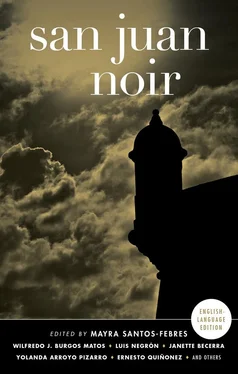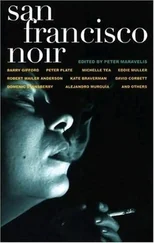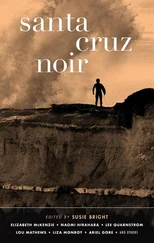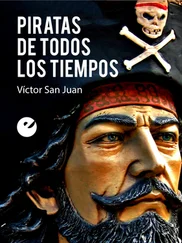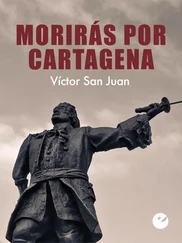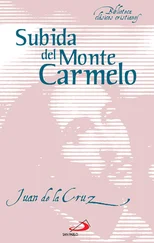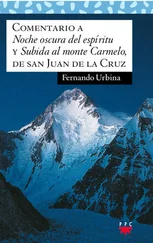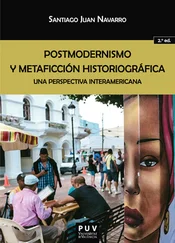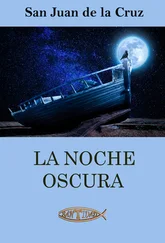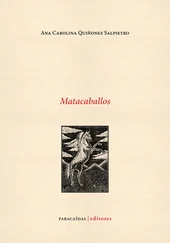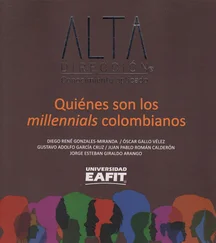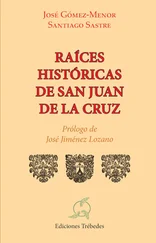Ernesto Quiñonez - San Juan Noir
Здесь есть возможность читать онлайн «Ernesto Quiñonez - San Juan Noir» весь текст электронной книги совершенно бесплатно (целиком полную версию без сокращений). В некоторых случаях можно слушать аудио, скачать через торрент в формате fb2 и присутствует краткое содержание. Город: New York, Год выпуска: 2016, ISBN: 2016, Издательство: Akashic Books, Жанр: Детектив, на английском языке. Описание произведения, (предисловие) а так же отзывы посетителей доступны на портале библиотеки ЛибКат.
- Название:San Juan Noir
- Автор:
- Издательство:Akashic Books
- Жанр:
- Год:2016
- Город:New York
- ISBN:978-1-61775-296-4
- Рейтинг книги:3 / 5. Голосов: 1
-
Избранное:Добавить в избранное
- Отзывы:
-
Ваша оценка:
- 60
- 1
- 2
- 3
- 4
- 5
San Juan Noir: краткое содержание, описание и аннотация
Предлагаем к чтению аннотацию, описание, краткое содержание или предисловие (зависит от того, что написал сам автор книги «San Juan Noir»). Если вы не нашли необходимую информацию о книге — напишите в комментариях, мы постараемся отыскать её.
San Juan Noir — читать онлайн бесплатно полную книгу (весь текст) целиком
Ниже представлен текст книги, разбитый по страницам. Система сохранения места последней прочитанной страницы, позволяет с удобством читать онлайн бесплатно книгу «San Juan Noir», без необходимости каждый раз заново искать на чём Вы остановились. Поставьте закладку, и сможете в любой момент перейти на страницу, на которой закончили чтение.
Интервал:
Закладка:
This happened a long, long time ago, when my father was just a fourteen-year-old kid. New York City had never seen anything like this. My father made the cover of Newsweek . Was in Time and all over the papers. The media wanted his blood. Called him the Capeman. He was sentenced to the chair but was pardoned at the last minute and did sixteen years.
Many years afterward, a legendary and wealthy musician wanted access to my father’s life story. This guy wanted to produce a multimillion-dollar Broadway musical based on my father’s life. The musician went looking for my father too, like I am looking for him today, but all he found was Mama and a twelve-year-old me. The musician gave Mama a piece of paper; it was a legal contract. It stated that they were setting aside a lot of money in an escrow account. Should my father ever show up, the money would be waiting for him. The Broadway show went on, though Mama never saw it. She held onto that piece of paper like it was a lottery ticket. She kept the contract safe and dry for years. “Remember, Julio,” she said to me on her death bed, “only ask of him what is due to us. What he never gave us.”
The gates of San Juan are lovely, but they frightened me. They are there to lock you out. To deny you access to the city. To tell you that you are a pirate. An outsider from Spanish Harlem, the mainland. A tourist and not a true Puerto Rican from the island. When I arrived at the huge red doors, I did not enter. I stayed standing there looking out toward the sea. I was afraid that for some reason I would not be let back into San Juan, that I’d be left out among the iguanas and stray cats that roam El Morro all night and day. What scared me the most was that the Capeman might be on the other side.
“Are you going to just stand there or come help me fish?” she asked, not ten feet away from the gates.
“Hi,” I said, “my name is Julio.”
“I don’t want to know your name. You came looking for my father?”
“ Your father?”
“I have my net and pole over there,” she pointed with her chin. “Come help me.”
She was young, much younger than I was. She was lovely beyond anything, as if she had been assembled by a committee of men. She was sweaty. Wearing shorts and her long, long hair hid her behind when she walked in front of me. I quickened my pace for us to be side by side. I studied her face to see if I saw my father or myself in her. It was a stupid thing to do since I had never seen him. Just pictures of when he was the Capeman.
“Caldo de pez tastes so good,” she said. “Touristy restaurants buy them from me. All I need is to catch one today and I’ll have enough money for a month.”
We walked toward a small inlet marina. There were many fishermen. From the boardwalk’s platform stemming from El Morro, one could see the large fish swimming below.
“With you here next to me, the men won’t be able to take the best spots for themselves. They’ll see you and make way for me.” She elbowed her way between two men who, annoyed, saw me standing behind her and left her alone. She then baited her pole and casted it out to sea. I could see that there were fish just a few feet away from us. “Those are no good,” she said, knowing full well what I was thinking, “too skinny.” She didn’t have a hat or anything to cover her head and the sun was beating down on me. Even the men had covered their heads. “Why are you looking for my father?”
“Because if it’s the same man, you are my sister.”
But she didn’t bat an eye. She continued to wield her pole, jiggling it, hoping to get a bite. “Do you know how many brothers I have? All from him. Do you see any of them trying to help me feed him?”
“I want to help you,” I responded. “I have something for him.”
She quickly took her eyes off the sea. “Give it to me,” she demanded more than asked. She held the pole with one hand and stuck out the other toward me. “Give it to me and I’ll give it to our father.”
“Can you take me to him?”
“What is it that you have for him?”
I wasn’t about to tell her. It was a long story. And I was not sure if she was telling me the truth.
“If you want to see the Capeman,” she had both hands back on the pole, “you have to roam the streets of Old San Juan at night. That viejo only comes out late at night.”
I had been searching for him only in the daytime; somehow she knew this.
“You’ll find him by a tourists store that sells Cuban cigars under the counter,” she said.
“What’s your name?”
“Magaly.”
I found him. Standing outside the cigar store on Calle Fortaleza, late at night, just like Magaly had said. He was wearing his cape. He was old but he was so tall that it gave him the appearance of having a lot of life left in him. He was light-skinned, almost white, with hazel eyes. The eyes saw me and smiled, and it was in the way he called me papo that I knew he felt comfortable both on the mainland and on the island.
“You see, papo, many people don’t know me because I made myself invisible.” He laughed a little laugh and he had a huge gap between his big front teeth. I saw that his cape was really worn out, the satin fading. His pants were thin too, as was his shirt, both fabrics disappearing into strings. His hair was long, parted in the middle, and held together with a rubber band. He reminded me of a broken-down Jesus Christ, ragged and old, whose disciples had long ago deserted him.
“My name is Julio,” I said.
“Yes, I know.” He peered at the night sky as if he had lost something there. “I gave you that name.” His tone and his slumped shoulders told me he was harmless. No longer that kid who had killed people.
“I’d like to begin again. But you see, I can’t do that, papo. So I live here in the night now and I try and forget, you know?”
“My name is Julio,” I repeated because I didn’t want him to keep calling me papo .
“Okay, papo, Julio,” he said and smiled a bit. “Your sister told me you have something for me?”
“Yes, I have me. Your son.” I don’t know what I expected of him. I myself felt very little love. This was the first time I had ever seen him, talked to him. Why would I think he would feel any different?
“A son is always a good thing,” he said with some joy, but no excitement.
“Mama is dead.” I felt a pang of sadness just by saying this. I saw how it hurt him too. We were outside, on the sidewalk, with insects flying around us and drunken tourists walking by. He sat down on the warm cement and held his heart. I kneeled down and grabbed him because he was about to topple over in a sitting position. For the first time I saw his face up close. His eyes were faint glimmers in a nest of wrinkles.
“I’m sorry.” I helped him get back up, leaned him against the wall of the cigar shop. “She didn’t suffer.”
“No, no, it’s okay.” He crouched now, hunching his shoulders like he was humbling himself. Like I’ve seen many tall people do when they feel inferior for being so tall. “I loved your mother,” he said in almost a whisper, “I did love your mother.” But no tears rolled down his face.
“But you left us and never came back.” I had little sympathy for him. I was here only for Mama. “You left us.”
He didn’t look at me but at the night sky, as if he could find the past there. Then he looked at the concrete below us. A cricket was hopping by. Then he looked at the taxis driving tourists. Then at the night sky again, as if he wasn’t sure where to start. When he did face me, his hazel eyes were huge like on an Egyptian’s coffin at the Met. He scanned my face like nervous radar, deciding if he should answer.
Читать дальшеИнтервал:
Закладка:
Похожие книги на «San Juan Noir»
Представляем Вашему вниманию похожие книги на «San Juan Noir» списком для выбора. Мы отобрали схожую по названию и смыслу литературу в надежде предоставить читателям больше вариантов отыскать новые, интересные, ещё непрочитанные произведения.
Обсуждение, отзывы о книге «San Juan Noir» и просто собственные мнения читателей. Оставьте ваши комментарии, напишите, что Вы думаете о произведении, его смысле или главных героях. Укажите что конкретно понравилось, а что нет, и почему Вы так считаете.
